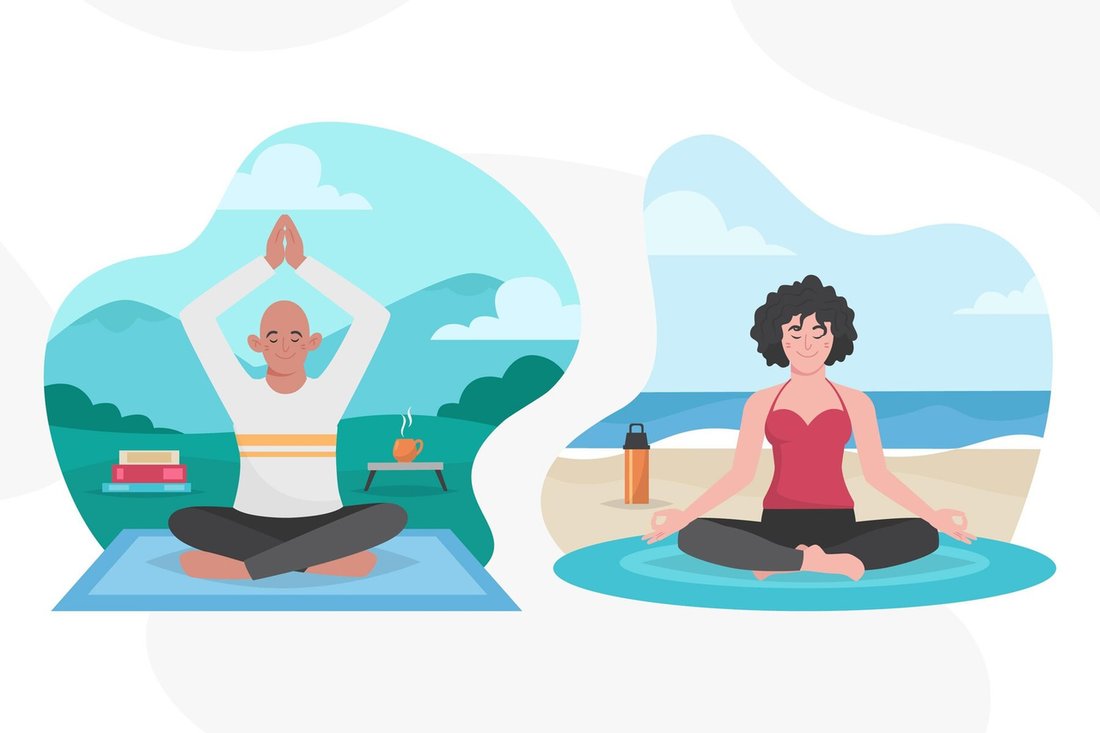Meditation, a practice rooted in ancient traditions, has gained significant popularity in modern times due to its profound benefits for mental and physical well-being. From reducing stress to improving concentration, the advantages of regular meditation are vast and varied. This article delves into the many benefits of meditation and provides guidance on how to make it a part of your daily life.
Understanding Meditation
1. What is Meditation?
Meditation is a practice where an individual uses a technique, such as mindfulness or focusing the mind on a particular object, thought, or activity, to achieve a mentally clear and emotionally calm state. It has been practiced for thousands of years in various cultures around the world.
2. Types of Meditation:
There are several types of meditation, including mindfulness meditation, transcendental meditation, guided meditation, and loving-kindness meditation. Each type has its unique approach and benefits.
Health Benefits of Regular Meditation
1. Reduces Stress:
One of the most well-known benefits of meditation is its ability to reduce stress. By focusing the mind and promoting relaxation, meditation helps lower cortisol levels, the hormone associated with stress.
2. Enhances Emotional Health:
Regular meditation can improve emotional health by increasing self-awareness and promoting a positive outlook on life. It can help individuals manage symptoms of depression and anxiety, leading to greater overall emotional stability.
3. Improves Concentration and Attention:
Meditation enhances the ability to concentrate and maintain attention. It increases the strength and endurance of attention, making it easier to stay focused on tasks.
4. Promotes Self-Awareness:
Meditation encourages a deeper understanding of oneself. By practicing self-inquiry and self-reflection, individuals can develop a stronger sense of self-awareness and personal growth.
5. Reduces Age-Related Memory Loss:
Meditation has been shown to improve memory and cognitive function in older adults. It can help delay the onset of age-related cognitive decline and enhance memory recall.
6. Improves Sleep:
Meditation can help improve sleep quality by promoting relaxation and reducing insomnia. Regular practice can lead to deeper, more restful sleep.
7. Reduces Symptoms of PTSD:
For individuals with post-traumatic stress disorder (PTSD), meditation can be an effective tool for managing symptoms and improving quality of life.
8. Enhances Pain Management:
Meditation can help individuals manage chronic pain by reducing the perception of pain and increasing pain tolerance.
How to Incorporate Meditation into Your Daily Routine
1. Start Small:
Begin with short sessions of 5-10 minutes and gradually increase the duration as you become more comfortable with the practice.
2. Create a Dedicated Space:
Choose a quiet, comfortable place where you can meditate without distractions. This can help you establish a routine and make meditation a habit.
3. Use Guided Meditations:
If you're new to meditation, consider using guided meditation apps or online resources. These can provide structure and guidance as you learn the practice.
4. Be Consistent:
Try to meditate at the same time each day. Consistency is key to reaping the long-term benefits of meditation.
5. Focus on Your Breath:
Pay attention to your breath as it flows in and out. This simple technique can help anchor your mind and keep you present.
6. Practice Mindfulness Throughout the Day:
Incorporate mindfulness into your daily activities, such as eating, walking, or doing household chores. This can help you stay present and maintain a calm state of mind.
7. Join a Meditation Group:
Consider joining a meditation group or class. Practicing with others can provide motivation and support.




